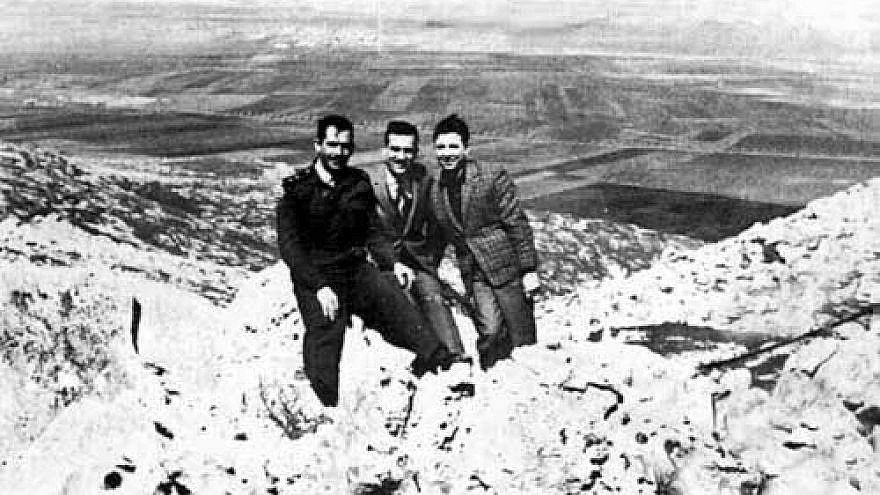Has the body of Israeli hero Eli Cohen been recovered?
The Syrian opposition recently reported that the remains of Israeli spy Eli Cohen were delivered to the Russians in preparation for their return to Israel. The reports also gave details about the remains of other Israelis buried in Syria.
The Syrian opposition also issued new information on how Syrian intelligence has been guarding the remains of Israelis in Syria, reportedly at Syrian President Bashar Assad’s bidding.
If Cohen’s remains have indeed been transferred, they will have to undergo identification by Israel. There has been no clear Israeli comment on these reports.
Intelligence agent Eli Cohen
The first Syrian opposition report regarding Cohen’s remains came on Twitter on April 14.
The tweet stated: “There are unverified leaks within Damascus itself about a coffin that was transferred with the Russian delegation that left Syria. The leaks say the coffin may contain the remains of the Israeli spy Eli Cohen. We are awaiting verification.”
No other source has verified this tweet, which was first publicized in Israel by the Jerusalem Center for Public Affairs. It, too, however, has not been denied clearly by Israel.
Subsequently, the Syrian-opposition website Orient Net posted a detailed report on the remains of Israelis buried in Syria.
Details on Israeli MIAs
The report quoted Syrian intelligence official Omar Abu al-Abd as saying that President Assad had ordered his security forces to guard the graves of the Israeli soldiers as well as their personal effects. Overseeing the issue on Assad’s behalf and in direct coordination with the Syrian president was General Ibrahim Hweijah.
According to the report, Israeli soldiers were buried at three sites: the Yarmouk refugee camp, the Al-Maza military airport and the Bab Masala area in the center of the capital, Damascus.
The report also said that the remains of six Israeli soldiers were buried in the Yarmouk camp, including Zachary Baumel, who was killed in the Battle of Sultan Yakoub in 1982 and whose body was returned to Israel at the beginning of April.
The report conveyed further that the Israeli soldiers’ remains in Syria are those of soldiers killed over the past 50 years in battles with both Hezbollah and Palestinian organizations. Their graves are numbered and nameless. Syrian intelligence personnel guard them, along with members of the Popular Front-General Command organization of Ahmed Jibril.
According to the report on Orient Net, Jews are buried in the Al-Sheikh Hassan cemetery in the Bab Masala area in central Damascus. Civilians and soldiers, however, are prohibited from approaching these graves and photographing them. The graves are separate from others in the cemetery.
The report also said the Syrian authorities had arrested dozens of Syrians who had connections with Jewish families abroad and tried to photograph the graves and send the pictures to their relatives outside of the country.
Timing of the announcement
The timing of the announcement is apparently related to developments in Syria involving the return of Zachary Baumel’s remains for burial in Israel and the ongoing efforts to locate, with the Russians’ help, the remains of the two others who went missing at Sultan Yakoub — Yehuda Katz and Zvi Feldman.
Some of the reports may be accurate. The new information on Orient Net about Assad’s role in safeguarding the Israeli soldiers’ remains is meant to highlight the importance the Syrian regime ascribes to this issue.
Caution is in order. It is possible that the Syrian opposition’s reports are intended to embarrass Assad’s regime and brand Assad as a collaborator with Israel for helping Israel obtain the remains of the missing Sultan Yakoub soldiers and Eli Cohen — notwithstanding Israel’s intensive airstrikes in Syria.
The Syrian regime has refused for decades to return Cohen’s remains to Israel. From the Syrian standpoint, Syria’s honor and national security suffered a huge blow when the Israeli spy succeeded in penetrating the ruling elite and providing intelligence of the highest quality to Israel, which helped it, among other things, to conquer the Golan Heights during the Six-Day War.
If the Syrian opposition’s information on the transfer of Eli Cohen’s remains to Russia is accurate, it represents a very important development. The Syrian regime will be unable to deny it and will have to provide convincing explanations to the Syrian people.
We will have to wait for further developments.

 48.0°,
Light Rain
48.0°,
Light Rain 




